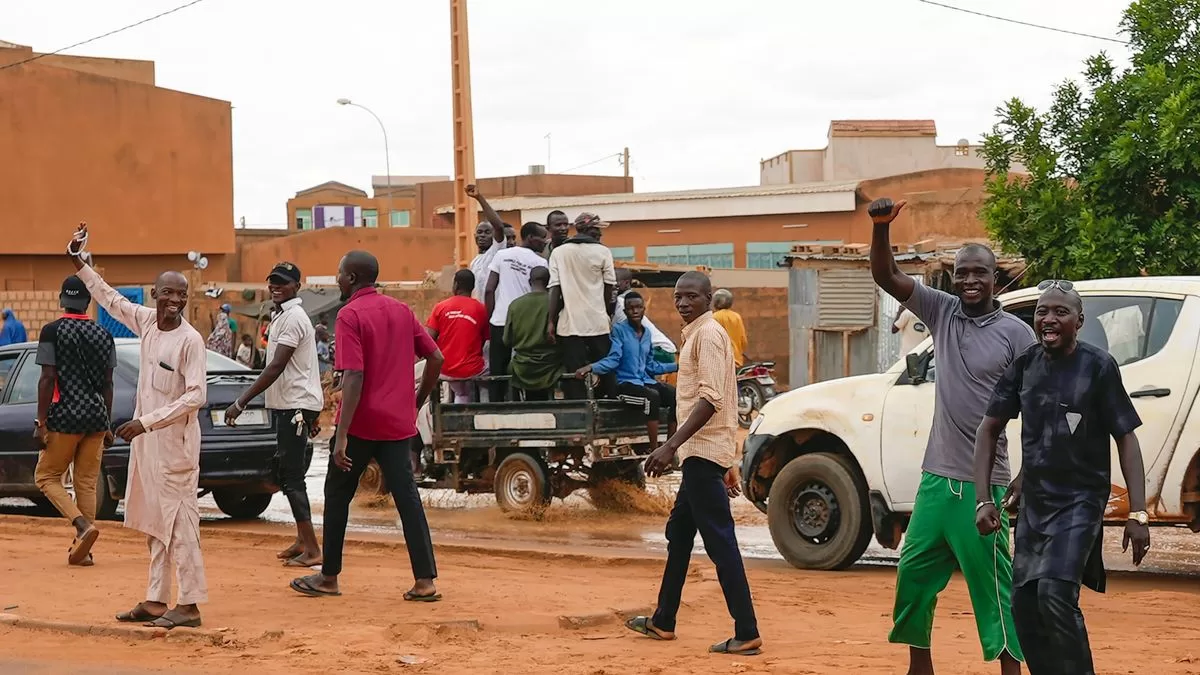The Economic Community of West African States (ECOWAS) had given soldiers who overthrew the democratically elected government of President Mohamed Bazoum until last Saturday to free and reinstate the president under threat of military intervention. The bloc ordered on Thursday the deployment of a “reserve force” to restore constitutional order in Niger. Nigeria, Benin, Senegal and the Ivory Coast said they would contribute troops.
But it was not clear when or how the troops would be deployed. Getting the operation up and running could take weeks or months, and while the bloc decides what to do, the junta gains power, some said.
“It seems that the (coup plotters) have won and will stay… They have all the cards and have consolidated their mandate,” said Ulf Laessing, director of the Sahel program at the Konrad Adenauer Foundation.
ECOWAS is unlikely to intervene militarily and risk plunging Niger into civil war, he said, adding that the organization and Western countries are likely to put pressure on the junta to agree to a short transition period.
Europe and the United States will have little choice but to recognize the junta to continue security cooperation in the region, Laessing said.
The July 26 coup is seen as a major blow to many Western countries, which saw Niger as one of their last partners in the troubled Sahel region south of the Sahara desert, with whom they could work to combat a growing Jihadist insurgency associated with Al Qaeda and the Islamic State group. The United States and France have more than 2,500 military personnel in the region and, along with other European countries, have invested hundreds of millions of dollars in military assistance and training for Nigerian forces.
It was not clear what would happen days after ECOWAS announced its “reserve” force.
A meeting of the region’s defense officials was postponed without a date. The African Union was scheduled to hold a meeting on Monday on the Niger crisis. The group’s Peace and Security Council could overturn the decision if it believes an intervention threatens peace and security on the continent as a whole.
The postponement of the defense chiefs’ summit indicates that ECOWAS sees the use of force as a last resort, said Nate Allen, an associate professor at the Africa Center of Strategic Studies.
“Given the likely challenges that an intervention would face, (the use of force) would require a high degree of consensus and coordination not only within ECOWAS, but within the African Union and the wider international community,” he said.
But people close to the junta say they are preparing to fight, especially as the soldiers are unwilling to negotiate unless ECOWAS recognizes their leader, Gen. Abdourahmane Tchiani, who ousted the president, as ruler.
“ECOWAS demands that (the junta) immediately release President Bazoum and reinstate him as head of state. Is this a joke?” said Insa Garba Saidou, a local activist who assists the country’s new military rulers with communications and says he is in direct contact with them. “Whether Bazoum resigns or not, he will never be president of Niger again.”
As time goes by, concerns grow for the safety of Bazoum, who has been under house arrest with his wife and son since the coup. People close to him say the conditions he is in are deteriorating, with no running water, electricity or enough food. Niger’s junta told a US diplomat that he would kill the president if neighboring countries tried any military intervention to reinstate him in office, two Western officials told The Associated Press.
Most Nigeriens were trying to get on with their lives as the tussle between the coup leaders and the countries of the region continued.
The streets of the capital, Niamey, were mostly quiet except for sporadic small pro-junta demonstrations. Hundreds of people marched on the French military base on Friday demanding the departure of the French while waving Russian flags.
Mercenaries from the Wagner Group, associated with Russia, already operate in a handful of African countries, and are accused of committing human rights violations. The junta reportedly asked the mercenary group for help on a visit this month to neighboring Mali, which is also ruled by a military regime and collaborates with Wagner.
FOUNTAIN: Associated Press


